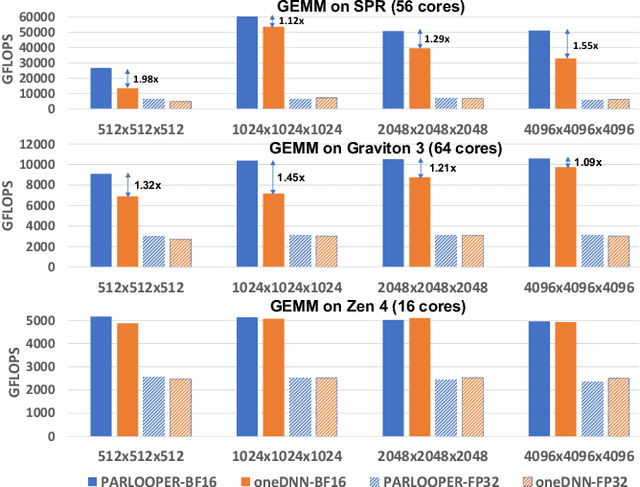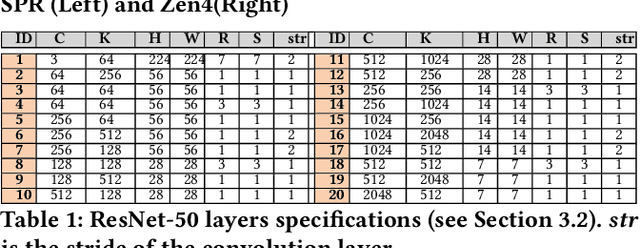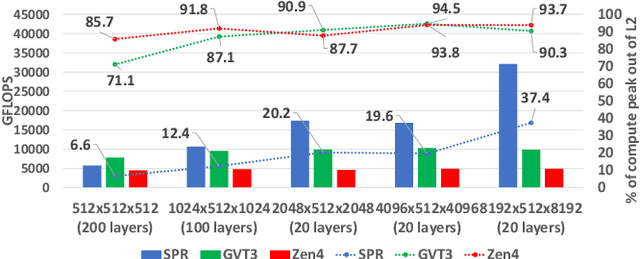Harnessing Deep Learning and HPC Kernels via High-Level Loop and Tensor Abstractions on CPU Architectures
Paper and Code
Apr 25, 2023



During the past decade, Deep Learning (DL) algorithms, programming systems and hardware have converged with the High Performance Computing (HPC) counterparts. Nevertheless, the programming methodology of DL and HPC systems is stagnant, relying on highly-optimized, yet platform-specific and inflexible vendor-optimized libraries. Such libraries provide close-to-peak performance on specific platforms, kernels and shapes thereof that vendors have dedicated optimizations efforts, while they underperform in the remaining use-cases, yielding non-portable codes with performance glass-jaws. This work introduces a framework to develop efficient, portable DL and HPC kernels for modern CPU architectures. We decompose the kernel development in two steps: 1) Expressing the computational core using Tensor Processing Primitives (TPPs): a compact, versatile set of 2D-tensor operators, 2) Expressing the logical loops around TPPs in a high-level, declarative fashion whereas the exact instantiation (ordering, tiling, parallelization) is determined via simple knobs. We demonstrate the efficacy of our approach using standalone kernels and end-to-end workloads that outperform state-of-the-art implementations on diverse CPU platforms.
 Add to Chrome
Add to Chrome Add to Firefox
Add to Firefox Add to Edge
Add to Edge